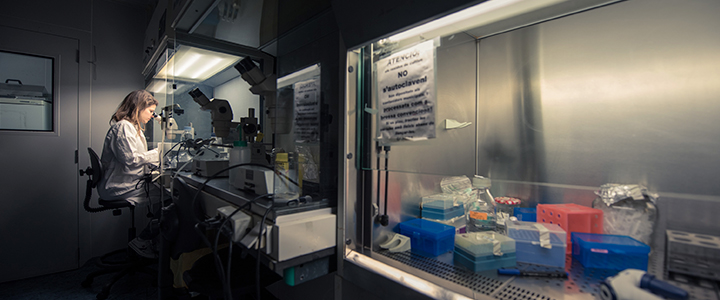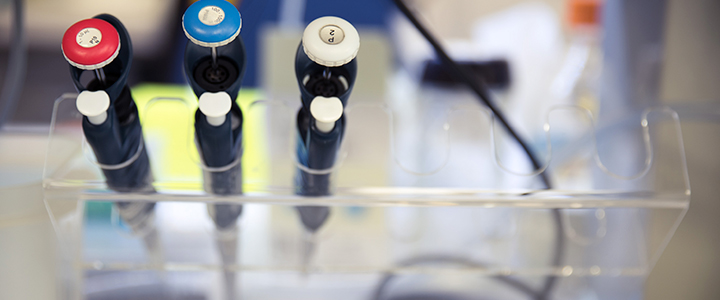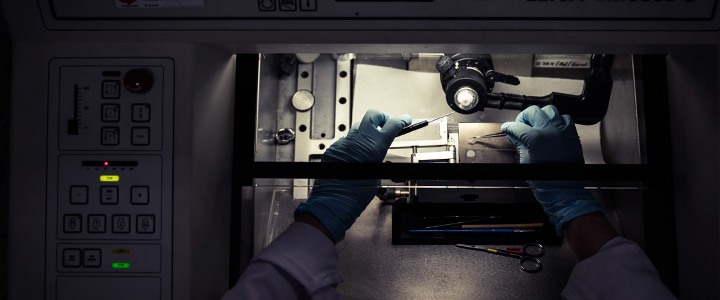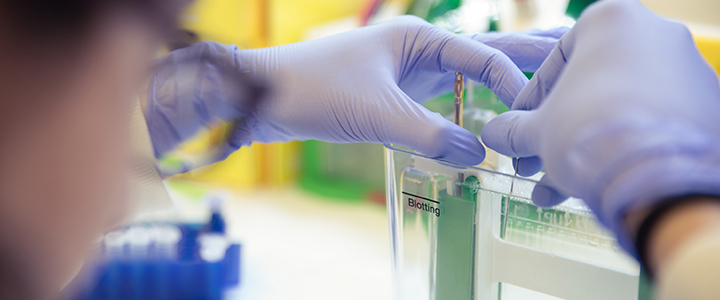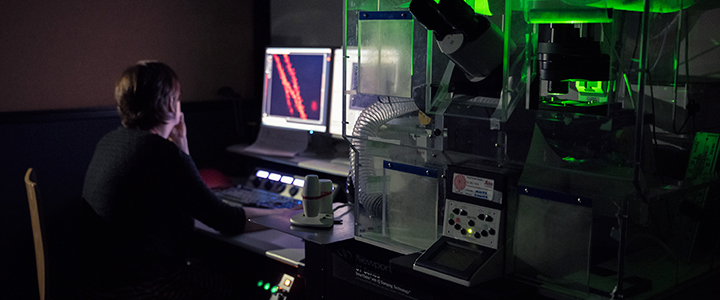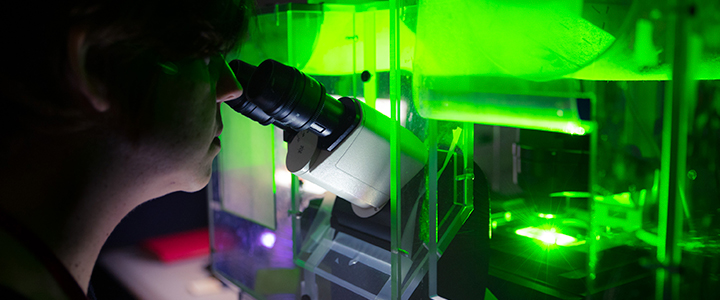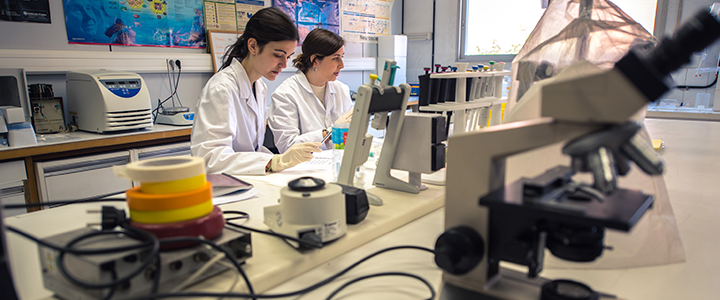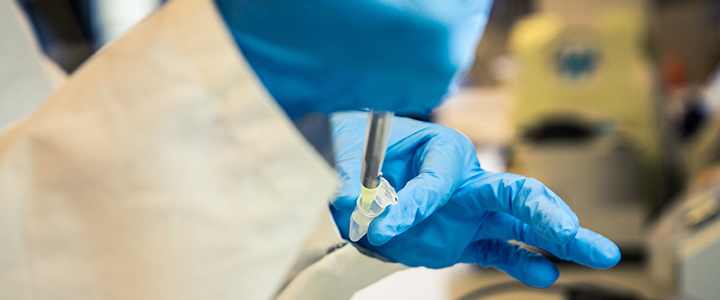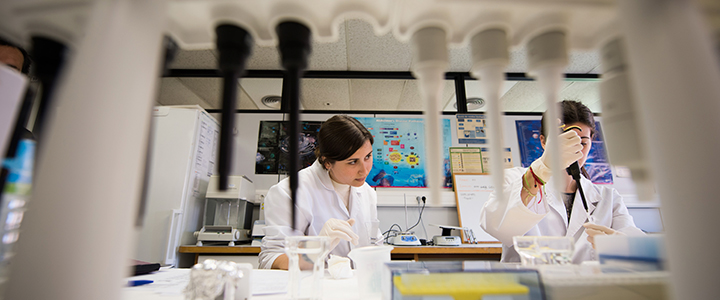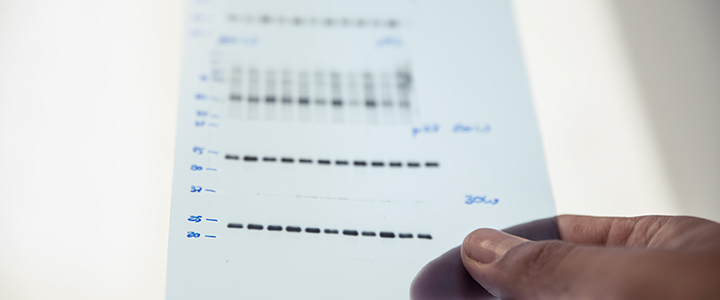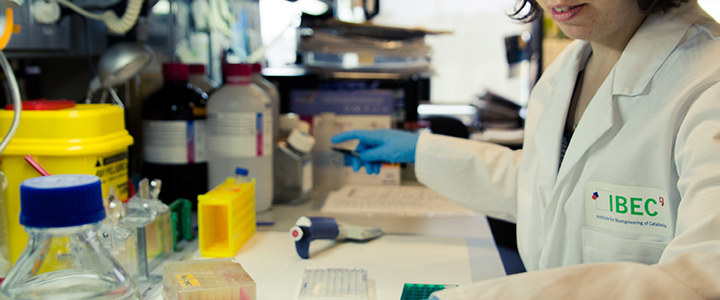Research groups
Representative of the research area
Prof. Mercè Pallas Lliberia
pallas (at) ub.edu
THE STUDY OF THE PATHOPHYSIOLOGY OF NERVOUS SYSTEM DISEASES IS AN IMPORTANT CHALLENGE IN BIOMEDICINE TO DEVELOP NEW SUCCESSFUL THERAPIES
Neurological and psychiatric disorders can disrupt molecular pathways, synapses, neuronal and glial subpopulations, and local circuits in specific brain regions, as well as higher-order neural networks. Therefore, research must range from the study of large-scale brain network alterations to the microscopic and/or genetic abnormalities. Improving our knowledge of the pathophysiology of these conditions will enable not only to identify new potential therapeutic targets but also biomarkers, whose usefulness can range from detecting diseases in very early stages more likely to respond to disease-modifying treatments than advanced stages, to differentiate among similar conditions and to monitor response to treatments.
Research in this area focuses on defining the pathophysiological mechanisms involved in the loss of normal and neuronal plasticity related to these diseases. A deeper understanding of neuronal connectivity and dynamics, signaling molecules, cell-cell interaction and epigenetic factors in the nervous system will enable us to devise new pharmacological targets for therapeutic strategies to prevent or delay nervous system diseases
Another therapeutic approach for nervous system disorders is neuroregenerative medicine. The institute is also interested in mimicking neural development on stem cells for replacing strategies as new therapies for diseases affecting the brain and spinal cord.
Thus, the current structure and expertise of the Institute of Neurosciences constitute the best environment to conduct multidisciplinary and translational research to find therapeutic approaches for motor and cognitive dysfunctions.
Featured projects
- In vitro Study of Neurodevelopment in Huntington’s Disease.
CHDI Foundation, Inc. 600101. Josep M. Canals
- In vivo reprogramming to rescue alterations in Huntington’s disease. Fundació ‘La Caixa’. HR21-00622. Josep M. Canals
- Training for Advanced Stem Cell Technologies in Neurology (ASCTN-Training). European Union. MSCA-ITN-2018. 813851. Josep M. Canals
- Papel de la proteina de matriz extracelular Reelina en plasticidad neural y en la enfermedad de Alzheimer. Ministerio de Ciencia, Innovación y Universidades. PID2019-106764RB-C21. Eduardo Soriano
- Dinámica de los agregados macromoleculares de heteroreceptores de dopamina-adenosina en esquizofrenia y trastornos neurodegenerativos. Ministerio de Ciencia e Innovación. PID2020-118511RB-I00. Francisco Ciruela
- Modulation of Tau seeding and pathology in tauopathies by BBB-nanocarriers, epitope selective vaccination and ectoPrP Tau receptor bodies (STOPTauPATHOL). Fundació ‘La Caixa’. HR18-00452. Jose Antonio del Rio
- Nuevas aproximaciones para entender las funciones de la PrPC y miembros secretables de semaforinas durante el desarrollo del hipocampo y en neurotransmission. Ministerio de Ciencia, Innovación y Universidades. RTI2018-099773- B-I00. Jose Antonio del Rio.
- Red Temática de Investigación Cooperativa en Salud -Terapia Celular. Ministerio de Economia y Competitividad
- Network Center for Biomedical Research in Neurodegenerative Diseases (CIBERNED
- Network Center for Biomedical Research in Rare Diseases (CIBERER)



